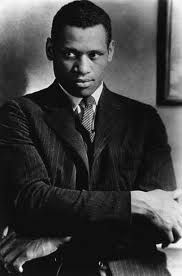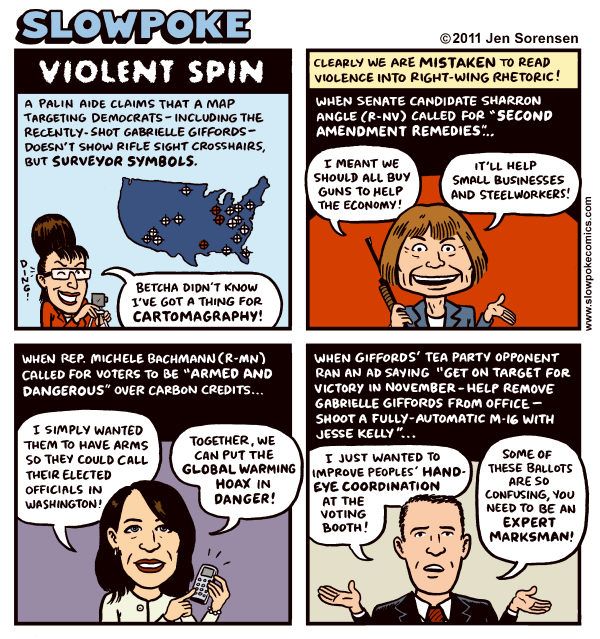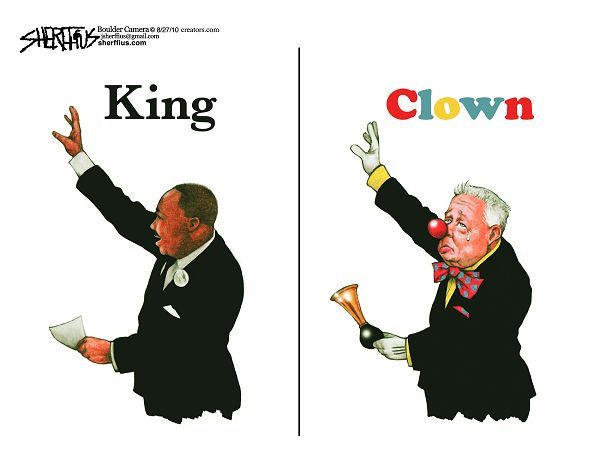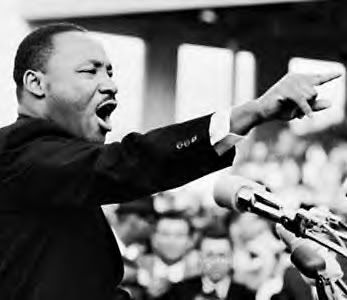Update: 7/11/2017 18:00 CET Donald Jr. released the e-mails before seeing his lawyer and before the NYT. Russian Dirt on Clinton? ‘I Love It,’ Donald Trump Jr. Said By Matt Apuzzo, Jo Becker, and Adam Goldman The June 3, 2016, email sent to Donald Trump Jr. could hardly have been more explicit: One of his …
Tag: Jr.
Nov 30 2014
Anti-Capitalist Meetup: Ferguson: Do the Right Thing Redux
This has been a busy weekend — dividing time somewhat schizophrenically between participating in one or the other of the many actions sparked by the decision in Ferguson not to indict police officer Darren Wilson for the murder of Michael Brown — while at the same time planning an annual Thanksgiving meal. Being a “conscious” political and multi-racial “family”, on past Thanksgivings we often commemorated the day by attending a local American Indian event. As the years past, we reverted to a somewhat more traditional community potluck dinner with friends with turfu, organic dishes, etc. Still later, as biological families divided into nuclear subdivisions with children, somewhat smaller gatherings were held where we would prepare the traditional feast with a nod to and solemn commemoration of the genocidal history behind the holiday and watch a socially conscious movie.
This year, someone suggested that we Watch Do the Right Thing. (In full disclosure, we did not end up watching Do the Right Thing because one young black guest who happens to be gay felt that he had been bullied by his peers in the neighborhood as he was growing up and it would be a painful reminder (he still lives in central Harlem about a block from the National Action Headquarters) and another young black woman felt that she needed a break from the intensity of the explosion of feelings and responses that the Ferguson decision brought on. Life is often more full of contradictions and ambiguities than our political struggle for justice would suggest.
Still, the reminder of the controversial movie, first released to great criticism as to whether it was promoting violence or showing how destroying property was better than killing human beings, reminds us how a cultural representation can help people understand the emotions behind our struggle in a way that facts and figures can’t.
First released in 1989, Do the Right Thing, one of Spike Lee’s earliest movies, tells the story of the racial tensions in the black community in a Brooklyn neighborhood which culminates in tragedy when a young black man is killed by police. The young man’s death results in a night of rebellion in which the people in the community burn down local businesses including the local pizzeria.
The movie was released long after the racial tensions and the riots of the 1960s which it was meant to portray, and before the Rodney King beating in 1991 resulted in the rebellion in Los Angeles. Long before 41 bullets felled Amadu Diallo, the African immigrant shot at his front door by police in the Bronx, or the brutal torture of Abner Louima who was beaten and sodomized with a broomstick by police after he was arrested outside a Brooklyn nightclub. (Sidenote: Neither of these later incidents resulted in riots, but in organized nonviolent civil disobedience and, eventually in sort of very limited conviction of some of the perpetrators. It is interesting to note, however, the Louima case only came to light after a nurse reported the incident when he was brought to the hospital. She was the only one of 28 people who had witnessed parts of the incident the night he was arrested. The other 27 people threatened her for speaking out.)
In Do the Right Thing, Lee sets out the many cultural signifiers of the community’s racial tensions that lead to the violence of both police brutality and the violence of enraged communities of color — in other words, the very American history of the culture of oppression in the black community:
Mookie, played by Spike Lee, is the young man who, as the pizza delivery man, is viewed by a frustrated Tina, his girlfriend and mother of his child, as unambitious and unable or unwilling to live up to the model of the father and family man that is portrayed on TV, reflecting the tensions between the sexes in a community held down by racism.
Sal, the pizzeria’s Italian American owner, has been in the neighborhood for 25 years. His older son is openly racist while his younger son is friendly with Mookie. Sal sees himself as part of the neighborhood, but when asked by Smiley, a mentally disturbed young man who is always carrying around pictures of Malcolm X and Martin Luther King, Jr., and “Bugging Out” (described by his name)to put up pictures of Malcolm and Martin on his “Wall of Fame”, along with the Italian Americans such as Sinatra, he refuses because, as he says, he owns the restaurant.
There are many other signifiers — “Da Mayor,” an old alcoholic man who signifies street wisdom and compassion (but who is not respected by the younger generation in the neighborhood), the young men who hang on the corner, the Asian store owner who signifies new cultures moving into the neighborhood and the conflict that brings (but who can hold her own in a swearing match in a confrontation with her black American neighbors).
But most significant is Radio Raheem, a big young black man who supported Smiley and Buggin Out’s demand to post Malcolm and Martin’s pictures in the pizza parlor. Raheem is well meaning, but is always getting into trouble for playing his radio too loud.
When Sal and Radio Raheem get into a fight over turning down the radio and Sal calls him a “nigger,” a fight breaks out that spills into the street and draws a crowd and Sal calls the police. When the police come, they arrest “Buggin Out” and put Raheem in a chokehold which kills him. Once the cops realize he is dead, they beat up “Buggin Out” and leave the scene, leaving Sal and his sons exposed to the crowd’s rath. When the Mayor tries to calm the crowd down, the crowd turns on him. Mookie then picks up a trash can and throws it through the window of the pizzeria and a race riot begins. In the melee, the Mayor saves Sal and his sons.
While this is not a very good or complete synopsis of the movie, you get the picture Radio Raheem could be Michael Brown – or Earl Gardner, another “big” black man who was selling “loosies” on the street in Staten Island who was killed shortly after Michael Brown by NYPD officers in a chokehold, which was also witnesses by several citiznes (This raised new critiques about the appointment of William Bratton as the new New York City police chief since he has a known history of going after nonviolent offenders for small street “crimes” as well as a bad track record of chokehold deaths under his command)– or Anthony Baez (my neighbor in the Bronx) who was playing football with his nephew when the ball bounced and struck a police car and the policeman (who had already been moved from neighborhood to neighborhood to hide his history of excessive force) put 17 year old Baez into the chokehold and killed him — or 17 year old Jordan Davis who was killed in a gas station in Jacksonville, Florida for playing loud music because a 47 year old software engineer who was a known racist felt that Davis’ refusal to turn the music down “threatened” him and that he was entitled to shoot Davis and would not be held accountable by the police or courts. He was in fact convicted of murder, but 17 year old Davis is still dead.
The fact is, we all have our own memories of the cases that most specifically affected us and there are many other cases across the country and across the years– far far too many to recount here and they seem to be increasing. Which is why it is important to raise the question that Lee asks in Do the Right Thing.What must the black community do to finally overcome, once and for all, the virulent racism that is so endemic in the United. (For an analysis of the importance of the movie and the Ferguson situation to questions of violence, issues of the “Rule of Law” or why it is important not to conflate race and class, read below the fold.)
Jan 23 2011
“You Are the Un-Americans, and You Ought to be Ashamed of Yourselves”
Crossposted at Daily Kos and The Stars Hollow Gazette

On January 23, 1976, one of the greatest Americans of the twentieth century died a nearly forgotten man in self-imposed seclusion in Philadelphia, Pennsylvania.
Over the last three decades or so, you rarely, if ever, hear his name mentioned in the popular media. Once every few years, you might hear someone on PBS or C-Span remember him fondly and explain as to why he was one of the more important figures of the past century. In many respects, he had as much moral authority as Nelson Mandela, Martin Luther King, Jr. and Rosa Parks; he was as politically active as Dick Gregory, Harry Belafonte, John Lewis, and Randall Robinson; and, as befits many men and women motivated by moral considerations, he conducted himself with great dignity. For much of his life, not surprisingly and not unlike many of his worthy successors, he was marginalized and shunned by the political establishment of his time — until events validated their ‘radical’ beliefs and resurrected their reputations.
Throughout his life, few principled men of his caliber paid as high a price and for as long a period as he did for his political beliefs.
Jan 19 2011
The Week in Editorial Cartoons – Incendiary Political Rhetoric: Just Words?
Crossposted at Daily Kos and The Stars Hollow Gazette
|
|
|
|
Sep 02 2010
The Week in Editorial Cartoons – Of Kings and Wingnut Clowns, with Special Comment
Crossposted at Daily Kos and The Stars Hollow Gazette
|
|
|
|
When I see a 9/11 victim family on television, or whatever, I’m just like, “Oh shut up” I’m so sick of them because they’re always complaining. — Glenn Beck
~~~~~~~~~~~
Man is man because he is free to operate within the framework of his destiny. He is free to deliberate, to make decisions, and to choose between alternatives. He is distinguished from animals by his freedom to do evil or to do good and to walk the high road of beauty or tread the low road of ugly degeneracy. — Rev. Martin Luther King, Jr.
Aug 24 2010
DREAM Now Letters to Barack Obama: Carlos A Roa, Jr.
Originally posted on Citizen Orange.
The “DREAM Now Series: Letters to Barack Obama” is a social media campaign that launched Monday, July 19, to underscore the urgent need to pass the DREAM Act. The Development, Relief, and Education for Alien Minors (DREAM) Act, S. 729, would help tens of thousands of young people, American in all but paperwork, to earn legal status, provided they graduate from U.S. high schools, have good moral character, and complete either two years of college or military service. With broader comprehensive immigration reform stuck in partisan gridlock, the time is now for the White House and Congress to step up and pass the DREAM Act!
Dear Mr. President,
My name is Carlos and I’m a 23 year old undocumented immigrant from Caracas, Venezuela. I want to legalize my immigration status in this country through the passage of DREAM Act this year. For too long have I lived in the U.S. without papers. It has been over 20 years, now. I want to legalize my immigration status in order to fulfill my dreams of becoming a young professional in architecture.
May 01 2010
More on the Gulf Oil Debacle…
Last night Mike Malloy interviewed Mike Papantonio, who co-hosts the weekly radio program, Ring of Fire, along with Bobby Kennedy, Jr. Both are prominent trial attorneys, oftentimes representing plaintiffs in environmental damage suits. As one might imagine, they are probably not included on the holiday greeting card list for any of the companies in the Fortune 500.
The opening topic was the oil spill in the Gulf of Mexico. What follows are some bits and pieces that I can recall from that interview as well as my commentary.
Jan 21 2010
The Week in Editorial Cartoons – Sarah Palin’s Brilliant FOX Debut
Crossposted from Daily Kos. I didn’t have the time yesterday to post it here.
THE WEEK IN EDITORIAL CARTOONS
This weekly diary takes a look at the past week’s important news stories from the perspective of our leading editorial cartoonists (including a few foreign ones) with analysis and commentary added in by me.
When evaluating a cartoon, ask yourself these questions:
1. Does a cartoon add to my existing knowledge base and help crystallize my thinking about the issue depicted?
2. Does the cartoonist have any obvious biases that distort reality?
3. Is the cartoonist reflecting prevailing public opinion or trying to shape it?The answers will help determine the effectiveness of the cartoonist’s message.
:: ::
The Teabaggers’ Intellectual
Jan 16 2010
For Doctor King
The following MLK Weekend Essay is a reprint of an April 4, 2008 essay.
I’m thinking about times more than forty years ago when I sang, “We Shall Overcome.” I’m remembering how I felt when I sang it, holding hands, swaying, anticipation in the air. I loved the idea of walking hand in hand, black and white together, and at the same time there was always a tension, a tightness in my jaw and in the pit of my stomach, the presence of fear. The song’s purpose was to get ready to do what had to be done. I’m committed to nonviolence, I recall thinking, but there are those who are not. They shot James Meredith, and lynched Emmitt Till, and burned Greyhound buses, and unlike me, they don’t want me to be safe. Uncertainty about what will happen tightens my jaw, while my heart commits me to the cause.
Remembering these fears rekindles my old thoughts. I remember the policemen in the church parking lot writing down the license plate numbers as if it were the Appalachin Crime Convention. My mind flashes from people sitting in a restaurant who stop eating to stare and sneer, to the incomprehensible Mississippi Sovereignty Commission, to the repeated, threatening phone calls, to kids on a school bus yelling hate names through the windows, to the Klan and the police, and wondering how they were different. I think about the person who ran over my dog.
Apr 04 2009





